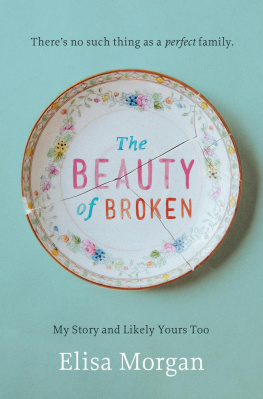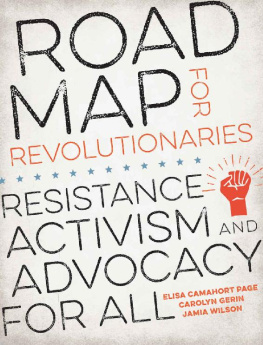First published 2009 by Left Coast Press, Inc.
Published 2016 by Routledge
2 Park Square, Milton Park, Abingdon, Oxon OX14 4RN
711 Third Avenue, New York, NY 10017, USA
Routledge is an imprint of the Taylor & Francis Group, an informa business
Copyright 2009 Taylor & Francis
All rights reserved. No part of this book may be reprinted or reproduced or utilised in any form or by any electronic, mechanical, or other means, now known or hereafter invented, including photocopying and recording, or in any information storage or retrieval system, without permission in writing from the publishers.
Notice:
Product or corporate names may be trademarks or registered trademarks, and are used only for identification and explanation without intent to infringe.
Library of Congress Cataloging-in-Publication Data
Sobo, Elisa Janine, 1963-
Culture and meaning in health services research : a practical field guide/Elisa J. Sobo.
p. cm.
Includes bibliographical references and index.
ISBN 978-1-59874-136-0 (hardback : alk. paper) -- ISBN 978-1-59874-137-7 (pbk. : alk. paper)
1. Medical anthropology. 2. Medical care--Research. I. Title.
GN296.S597 2009
306.461--dc22
2008052925
Cover design by: Andrew Brozyna
Hardback ISBN 978-1-59874-136-0
Paperback ISBN 978-1-59874-137-7
This is a book about bridges. Following years of impassioned disciplinary feuds between opposing critics and proponents of the scientific paradigm, it is invigorating to read Culture and Meaning in Health Services Research. Rather than the all-too-common dichotomizing of interpretive (meaning-centered) and empirical (positivist) research, of quantitative and qualitative methods, of theoretical and applied orientations, and of scholarly versus popular inquiries, this book occupies a unique niche as a guide to translation that emphasizes connections rather than disjunctures.
As the subtitle suggests, this is a practical field guide: It describes the health services world as if a field site, making it much more than a how-to manual. Elisa Sobo has tackled a massive task as she moves between the local knowledge of anthropologists and health services researchers, explicating for each the practices and discourses of the other, successfully managing to normalize the Otherness of academic medical anthropology and health services research for practitioners in these differing yet intersecting fields. For those of us who have, throughout our careers, attempted to explain what we do as (medical) anthropologists, whether in academic or other institutional settings, this book offers answers as well as questions for contemplation.
But to say that this is just a field guide does not do justice to this volume, which ranges from concise histories of anthropological theory and the origins of health services research to the details of diverse methodological approaches. Throughout, the reader is engaged by Dr. Sobos use of case studies and examples drawn from her own multifaceted research experiences. There is much to be gained here for medical anthropologists who intend to work in clinical settings, such as the author herself, or for nonanthropologists employed to conduct fieldwork in health care contexts. Ultimately, although the book is aimed at both these audiences, the fundamental objective is to validate anthropologically informed qualitative health research. I also see this volume as highly pertinent to medical anthropology graduate students; it is replete with exemplary cases for premed students who will benefit from the comparative histories of anthropological and health services research and from illustrations that show how relevant anthropologically informed methods can be for clinical practice.
This endeavor leads to a rich and broad discussion that underscores the uses of ethnography for health services research. Dr. Sobo convincingly argues that qualitative methods hold much promise for health service research, an assertion that she backs with a foray into the philosophical premises underlying these methods and with illustrations from her own work. Whereas many of us assume that ethnography necessarily involves long-term immersion in the study population, thus intensive participant observation, the projects and methods described in this book raise thoughtful questions concerning the feasibility of doing ethnography in settings far different from the remote field sites of many anthropological classics.
In my own hospital-based research, I have often encountered the contention that this book counters: Social relations and meanings are not relevant to health outcomes. Stories or narratives are considered of marginal importance relative to quantitative data. Anthropologists in similar situations will be gratified to find a thorough examination of the power of qualitative data in clinical contexts and how those engaged in health services research can collect, analyze, and present ethnographic and other qualitative data in ways that will drive policy and influence decision-making.
Ultimately, the books objective, to introduce anthropologys holistic, systems-oriented, comparative agenda to health services professionals, is impressively accomplished. At the same time, anthropologists will find in this volume an invaluable introduction to diverse terminology and typologies of research conducted in clinical settings such as QI (quality improvement), health services research, and IS (Implementation Science). Readers, whether experienced with anthropological methods or not, will find the review of how to use free lists, focus groups, onetime interviews, five-minute interviews, telephone interview protocols, not to mention variations on the theme of participant observation, in health services research intriguingthe making strange of the familiaras we follow the authors explication of how particular methods were deployed strategically in health services research.
The description of focus groupstheir advantages and disadvantages, formation, interview protocols, and data analysisis especially helpful, given the contested status of this method in different disciplines. More generally, the discussion of cultural competence, which is used as a vehicle to examine the value of bringing culture into the health care equation, is timely and provocative. Readers will be drawn into the debate on whether the cultural competence movement has the potential to reduce health inequities or even, at a much more minimal level, to generate awareness of cultural (and class) diversity that will actually produce meaningful results.
In the introduction to this book, Elisa Sobo recounts a conversation with the famous neuroscientist Francis Crick, co-discoverer of the double helix. He asks her to explain that absurd concept, the social sciences. As I was writing my dissertation, I had a parallel experience. While visiting friends doing doctoral research in genetics at a prominent university, I was introduced to the lab director. When told that I was an anthropologist, he inquired, Whats your organism? I replied (without much reflection), Humans. With furrowed brow, he asked Dont you find them a little complex? An understandable comment, perhaps, from a scientist whose lab specialized in one-celled organisms! Reading












